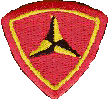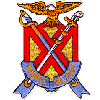It was in late September of 1967 that reality finally grabbed me by the throat and dragged me into a consciousness I would rather have avoided. I won't say that I was totally inattentive to what was going on outside of my existence, but I was like most thirteen-year-olds who get wrapped up in the details of their daily lives and tend to be oblivious to what is going on in the rest of the world. Or even next door.
In 1967, I spent the summer painting the redwood basket weave fence in my parents' backyard, listening to great summer songs like "Groovin" by the Young Rascals, "Happy Together" by the Turtles and "Respect" by Aretha Franklin. College students were protesting the war in Viet Nam, but my friends and I kept busy riding our sting ray bikes with the banana seats around town, "popping wheelies" and looking for whatever adventure could be found within the confines of the tri-town area we roamed. We camped out in the woods overnight, we fished in Electric Lake and we started to learn how to play tennis, making up the rules as we went along.
While the days were always fun because of our adventures, evenings and nights were magical somehow. Like never before, we were allowed to go out after dark, whether at my house or over at my friends'. It wasn't that we were just out after dark, but we were allowed to stay out late, traversing the neighborhoods and enjoying newfound freedom that we had never before experienced. The summer seemed to be endless back then, and while our days were full, they didn't rush by, as they do now. There was time for playing, working and just laying in the grass, looking up at the clouds. Life was good when you were thirteen years old and living in the United States of America in the late 1960's.
As August meandered by, I came to understand the significance of the fact that this was the summer before my last year in grammar school. I was heading into eighth grade, and I knew that it was going to be a special time. For years, I had waited to be in eighth grade. Eight years to be exact. Eighth graders were cool. No upper classmen to deal with, we would be in charge. I knew that the freedom I was experiencing that summer was connected to the fact that I was now a much more mature individual, capable of being successful in the eighth grade and being in charge of all those first through seventh graders. I also knew that the return to school brought with it a return to organized activities, both social and athletic.
And so, as September approached, bringing with it a return to the dreaded classroom, it also brought countless possibilities for new experiences and exploits, the best of which was my favorite sport, Football. That almost made going back to school worthwhile. While the summer represented carefree fun and idle hours, September meant a return to conditioning and the structure of organized sports, and the chance to be a hero on the gridiron. We would practice two afternoons during the week, and play our games on Saturday morning. My friends and I often traveled to practice together, driven by a parent or coach, because the field was across town, and, as the season wore on, darkness came earlier and travel by bicycle was more precarious.
I seem to remember it was a Thursday, but it could have been any day. We were driving along, heading to practice, and as we drove by the high school, I saw a spray of flowers in front of the brick and mortar sign at the entrance to the school. This isn't something I would necessarily have taken notice of, or even mentioned, but on this particular day, I did. I said to no one in particular, "What's with the flowers at the high school?" and one of my friends said, "Didn't you hear? Jedh Barker was killed in Viet Nam."
Jedh Barker was my first baseball coach. He was a fresh-faced 17-year-old when I first met him, and he made me feel like a part of the team. He was one of those "big kids" I looked up to when I was small, and he helped me feel good about myself. Now, at 22, he was dead. A victim of a war on the other side of the world that I knew about, but hoped would never touch me.
From that day on, Memorial Day has always had a deeper meaning for me. I hate war and the things it does to those involved and those touched by it, but I have a deep and abiding respect for the people who serve in the defense of our country, and make the ultimate sacrifice when called. It is because of them that I was able to enjoy the freedom I was starting to experience.
It turned out that Jedh died as a hero. After being wounded in combat, he saved the lives of his remaining comrades by throwing himself on a live hand grenade that was tossed into the area that they were defending. For his courage and bravery, he was awarded the Medal of Honor, and the final sentence of the citation reads: "He gallantly gave his life for his country". Like many who went before him, he lives on in the hearts of those who knew him.








